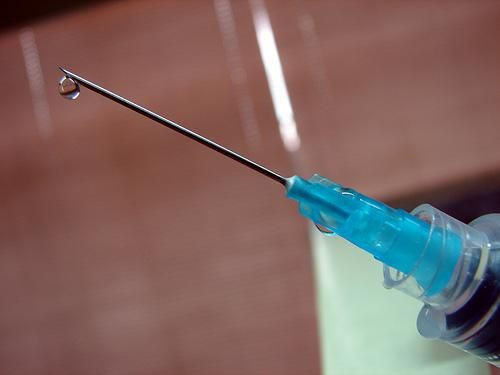House Subcommittee Report on Fungal Meningitis Outbreak Details FDA Failures

The Oversight and Investigations Subcommittee reviewed more than 27,000 internal FDA documents; since 2002, doctors, patients, providers, and whistleblowers informed the FDA that NECC and Ameridose were operating as manufacturers and marketing their products nationwide without patient prescriptions.
The FDA was also warned about sterility and safety issues for the companies' products. Since September 2012, nearly 14,000 people in 23 states, including an estimated 11,000 who received shots for back or neck pain, were exposed to mold-tainted doses of the drug methylprednisolone. A total of 53 people died and 720 people in 20 states fell ill after receiving the contaminated drugs produced by the now-closed NECC of Framingham, Mass.
U.S. Food and Drug Administration Commissioner Margaret Hamburg said that conflicting court decisions on the parameters of the FDA's authority caused the agency to slow its inspections around the time of the fungal meningitis outbreak while it clarified its legal scope of action. "I think we all agree that the FDA could've done a stronger job and that we are committed to doing so going forward," Hamburg told the subcommittee.
Since the NECC incident, the FDA has recalled seven additional sterile compounded and repackaged drug products by different pharmacies. The FDA maintains there is no way to know how many pharmacies are acting as compounders or what they are making. Traditionally, pharmacy compounding has been done on a small scale by pharmacists who prepare the medication based on an individual prescription.
Pharmacy compounding involves the preparation of customized medications that are not commercially available for individual patients with specialized medical needs. Regulatory oversight of pharmacy compounding is significantly less rigorous than that required for FDA-approved drugs, which are made and tested in accordance with good manufacturing practice regulations (GMPs), the federal statutes that govern the production and testing of pharmaceutical products. Unlike FDA-approved drugs, compounded drugs are exempt from GMPs and are not clinically evaluated for safety or efficacy. Compounding pharmacies are governed largely by Chapter <797>, a monograph on the pharmaceutical compounding of sterile products, issued but not enforced by the U.S. Pharmacopeial Convention.
Not all states require adherence to Chapter <797>, and those that do may choose not to enforce it stringently. Compounded preparations also do not have standard product labeling or prescribing information with instructions for safe use. Published reports of independent testing by the FDA, state agencies, and others consistently show that compounded drugs fail to meet specifications at a considerably higher rate than FDA-approved drugs. Compounded sterile preparations pose the additional risk of microbial contamination to patients.
"We are concerned about this evolving new hybrid of compounding pharmacy that is making sterile products in advance of prescription and selling across state lines," Hamburg said. In the last 11 years, three separate meningitis outbreaks have been traced to purportedly 'sterile' steroid injections contaminated with fungus or bacteria, which were made by compounding pharmacies. Because NECC simply called itself a compounding pharmacy, it did not have oversight from the FDA even though it was mass producing sterile products and distributing across multiple state lines, practices which far exceed the limits of traditional pharmacy compounding.
"We do believe we need new authorities to adequately regulate them," said Hamburg. Federal drug inspectors, who recently tried to increase their oversight of compounding pharmacies, faced stiff opposition, sometimes being denied access altogether, Hamburg told the Subcommittee on April 16. Twice they had to go to court and return with U.S. marshals in tow, which caused delays of days or weeks.
The House subcommittee charged that the recently increased activity underscores that the agency can inspect facilities without any new legislative authority, it has just failed to do so. Hamburg said, "At the present time compounding pharmacies, under existing laws, are not required to register with us, so we don't know who they are and what they are making."



























